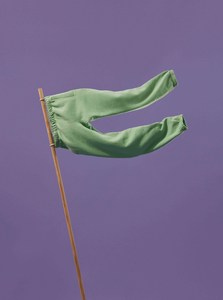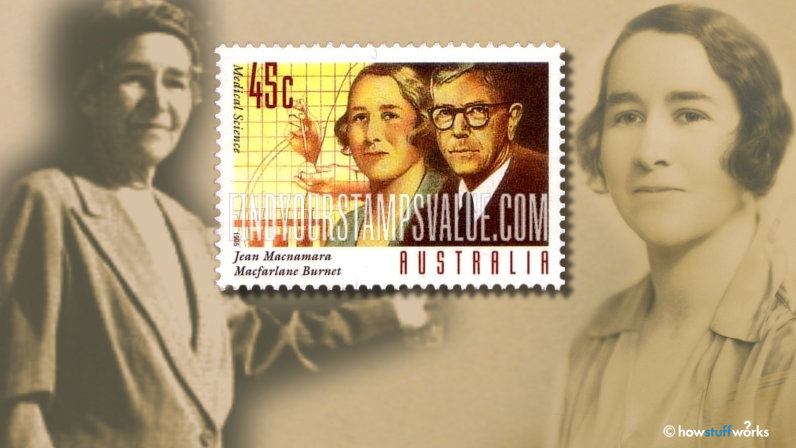“We can’t keep living like this?” is the cry. (Chip Le Grand and Sumeyya Ilanbey, “‘We can’t keep living like this’: COVID-19 state of emergency opens political divide,” The Age, 23 August 2020.) That’s not a cry of much use as we defend ourselves from an implacable and deadly enemy. We must change many things and quickly. Maybe we can’t live indefinitely in lockdown as we are now, but we must drastically and permanently change to ways of living very different from before. That is not optional and the Victorian Premier, Dan Andrews, knows it. Change or die: pick one.
Monthly Archives: August 2020
Abortive vaccines?
 There is controversy in Australia and elsewhere about the ethics of using so-called “immortalized cell lines” in the development of a Covid-19 vaccine, principally because those cell-lines may be derived from cells from foetuses that were electively aborted decades ago.
There is controversy in Australia and elsewhere about the ethics of using so-called “immortalized cell lines” in the development of a Covid-19 vaccine, principally because those cell-lines may be derived from cells from foetuses that were electively aborted decades ago.
It’s not simple. This article does a good job of sorting the bull from the wool. (Bethany Brookshire, “How making a COVID-19 vaccine confronts thorny ethical issues,” Science News, 7 July 2020.) It would be disastrous if public acceptance of a vaccine waned simply because people perceived it to be controversial without understanding the admittedly complex issues.
My hope is that scientists, public officials, church leaders and ethicists would come together to discuss (not debate) the questions in the search for an answer that advances the common good. Reasoning together will better serve the common good than beating one another over the head with science on the one hand and religion on the other.
Of course, there are some who would say that the common good simply cannot exist in defiance of what they understand to be the moral will of God. Others dismiss such concerns as irrelevant.
Density
The spread of coronavirus depends on two factors: (1) how dense the population is and (2) how dense the population is.
The lockdown flag
Jean Macnamara: not all viruses are invincible
A recent piece about Dame Jean Macnamara DBE (1899-1968) reminds me again of my great debt to her. She was the scientist and physician who, when I was about seven years old, figured out that I had had polio six years earlier.
Jean Macnamara distinguished herself at the University of Melbourne, graduating in 1922 with degrees in both surgery and anatomy. She went on to become a resident medical officer at the Royal Melbourne Hospital and was just 23 when she was appointed resident at the Royal Children’s Hospital in May 1923. It was a critical time as poliomyelitis was sweeping the globe. After leaving the hospital, in 1925, she entered private practice to focus on poliomyelitis patients.
Her research found that that immune serum needed to be used in polio treatment during the pre-paralytic stage. She published and defended her results in both Australian and British journals, though it was a treatment that was never widely administered.
However, it was her discovery in 1931, along with Australian virologist Sir Frank Macfarlane Burnet, of more than one strain of the poliovirus that made her reputation. Their finding was one of the first steps toward the eventual discovery of the Salk vaccine.
Macnamara travelled to England and North America on a Rockefeller Fellowship from September 1931 to October 1933, meeting President Franklin D. Roosevelt, himself a victim of polio.
In addition to her keen interest in curing disease, Macnamara sought to alleviate the pain and suffering it left in its wake. She is credited with ordering the first artificial respirator (or ventilator) in Australia. She introduced novel approaches to rehabilitation and splinting damaged limbs, most developed in conversation with patients and her own splint-maker. Macnamara proved to be a tireless advocate for people with disabilities long before it was in vogue.
Stay home or stay away, just don’t travel
Canberra has had no known new cases of Covid-19 infection for three weeks. And for that we give thanks to God, to health workers, to the territory government, and to the good sense of the city’s people.
Now, if your home is in Canberra, please stay here; if do you leave, please do not come back. If your home is not in Canberra, we love you, but please stay the fuck away.
And if you break the rules without good cause, I wish upon you the punishment prescribed by James Agee for arms merchants:
"…may [their] loins thaw with a shrieking pain, and may there be slow nails in the skulls of each, and may lost winds of plague unspeakable alight like flies upon their flesh, here in this earth and by public arrangement, to the sweet entertainment of all men of goodwill: and in their death may the vengeance of God shock their flesh from their bones, and their bones off the air, and all that was of them be reduced to the quintessence of pain very eternal, from moment to moment more exquisite everlastingly, by a geometrical increase: unless by improbable miracle they repent themselves straightway and for good." — Permit me voyage (Yale, 1934).
Not kidding. Lives are at stake.
Brian

